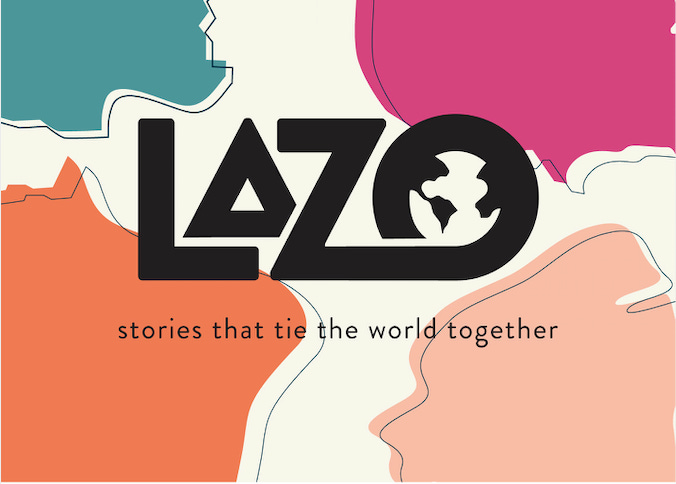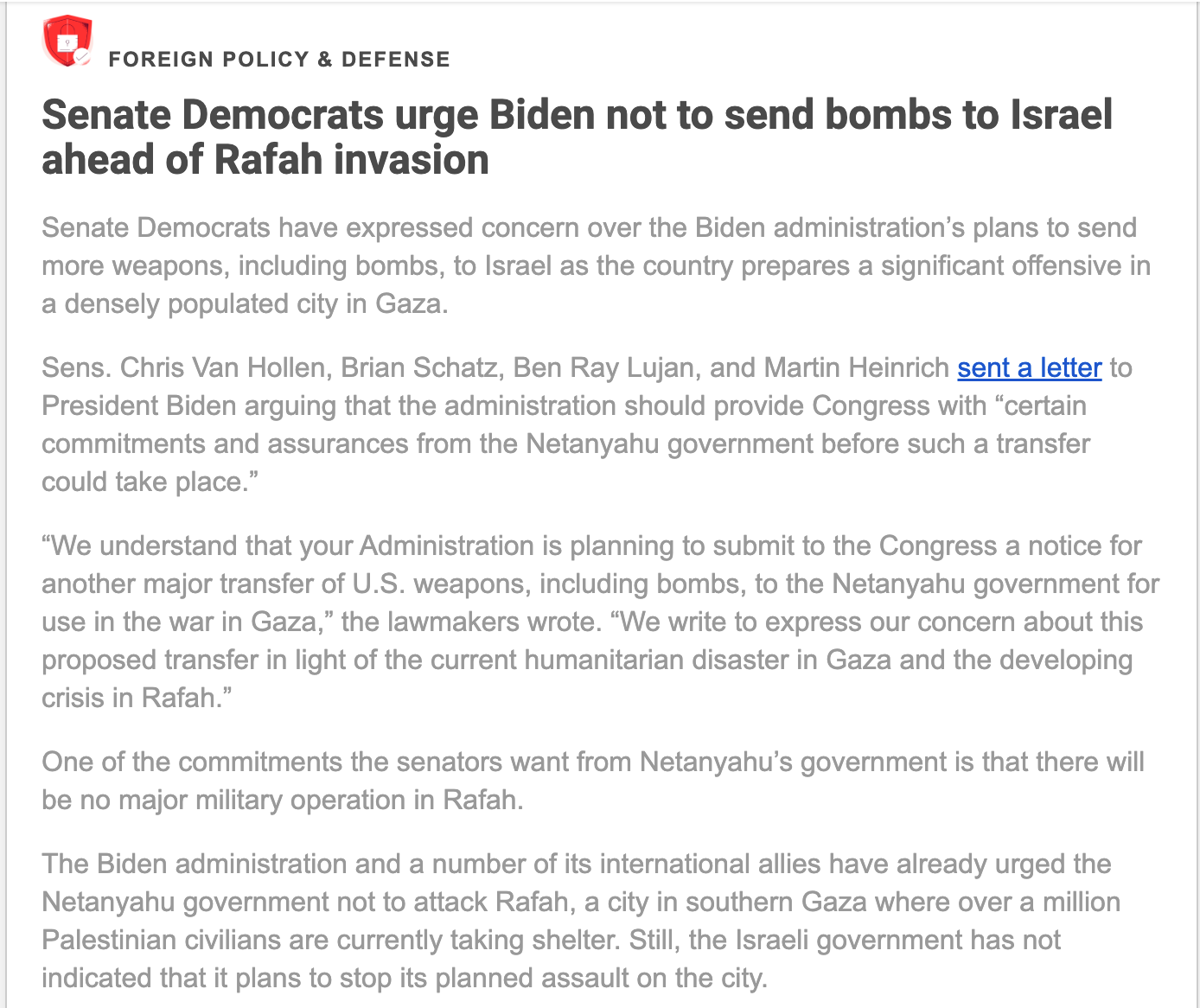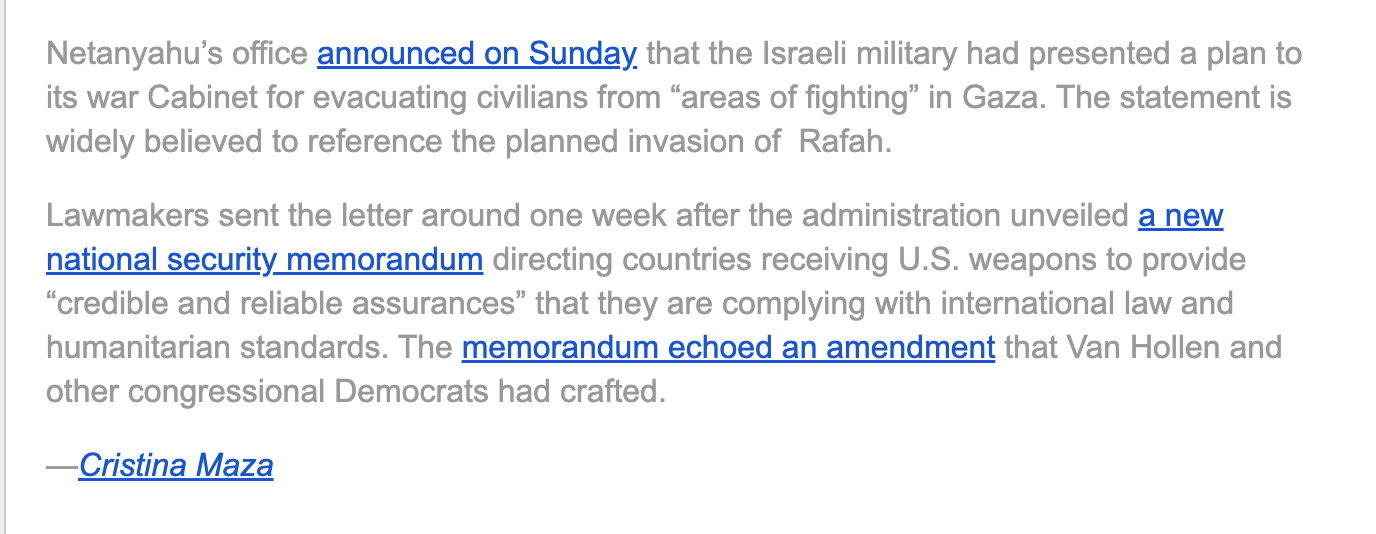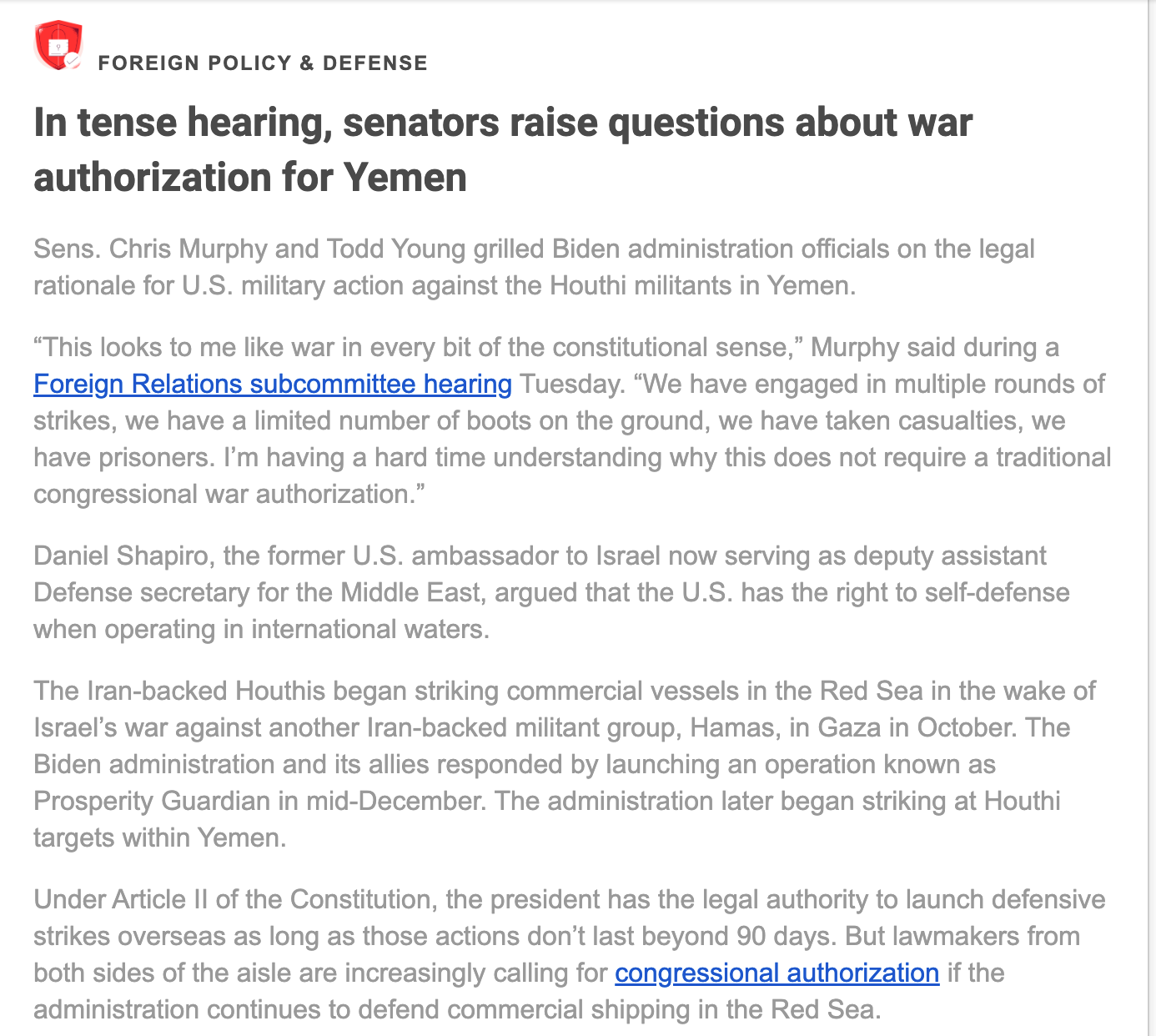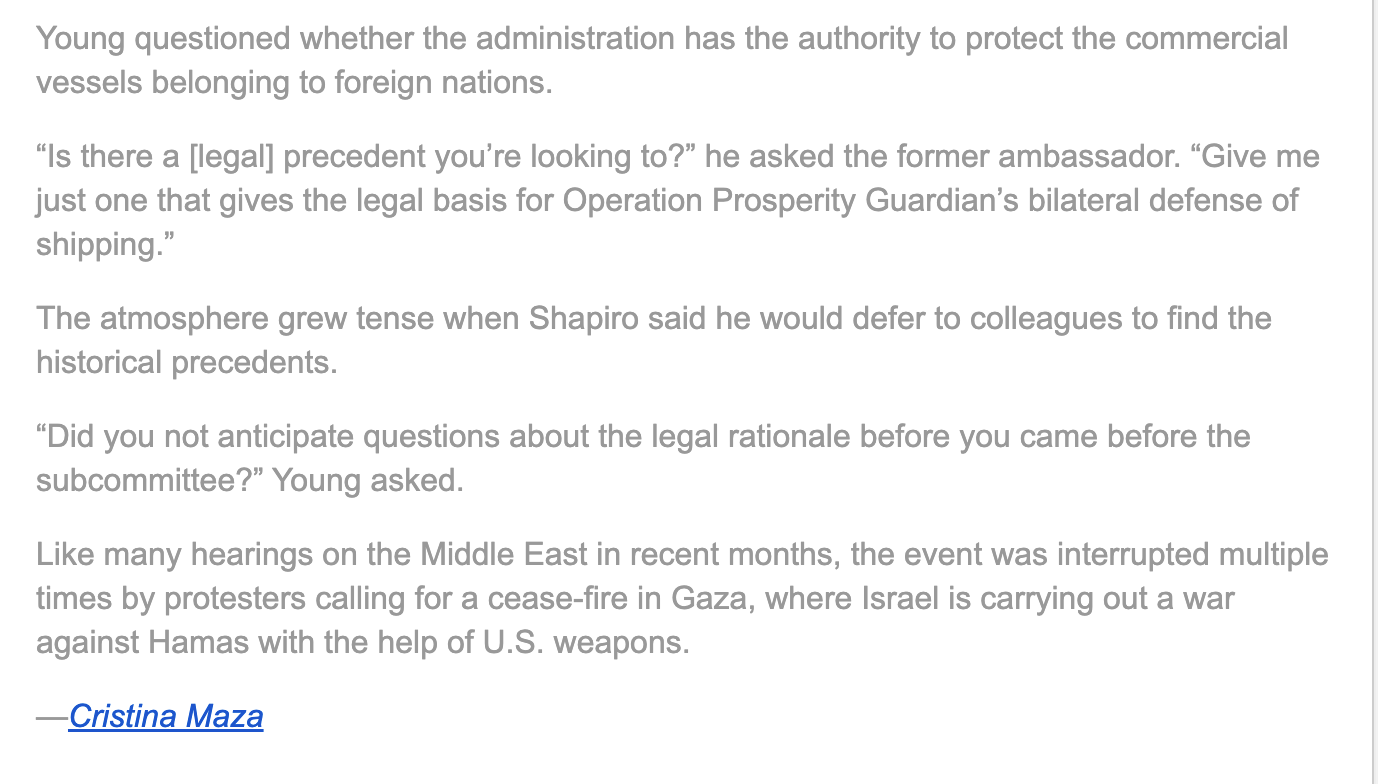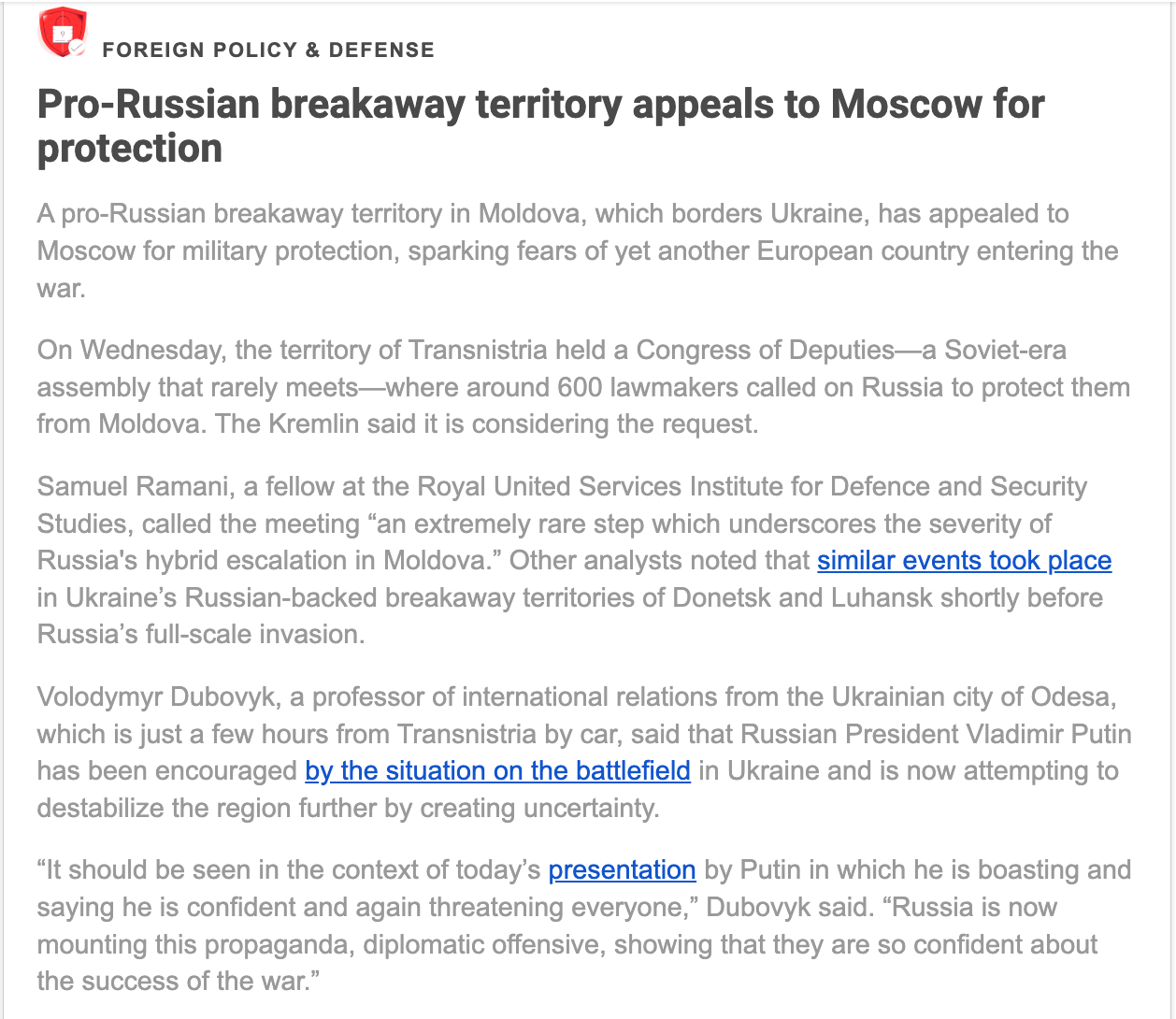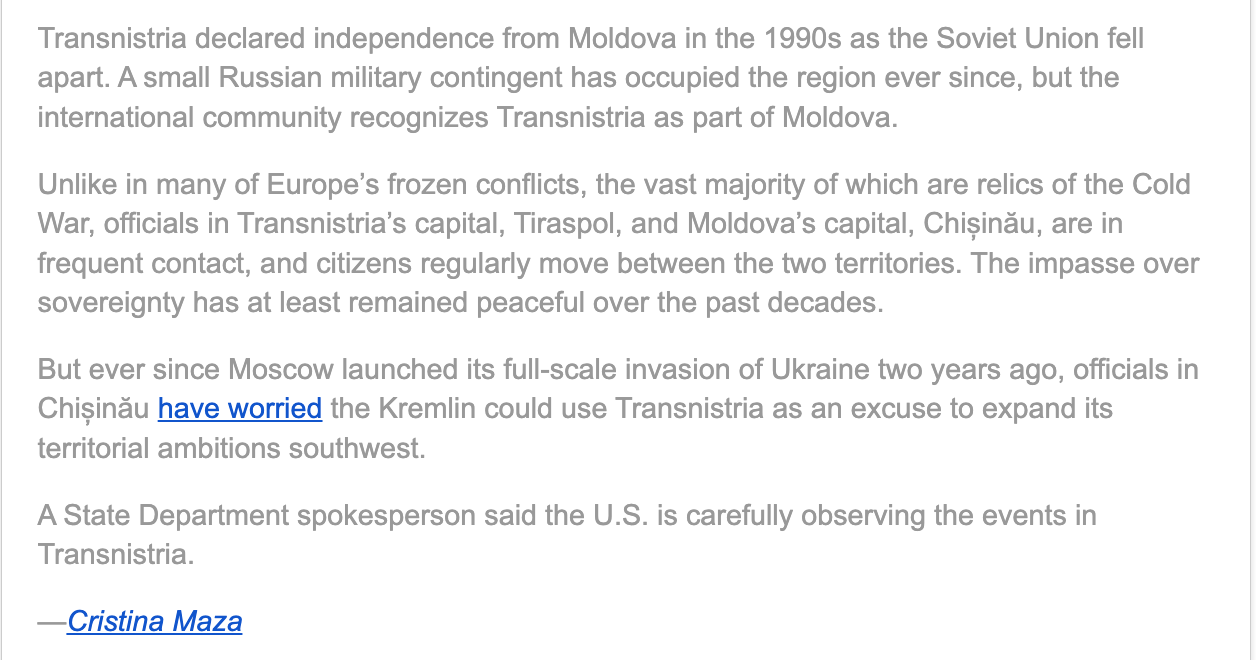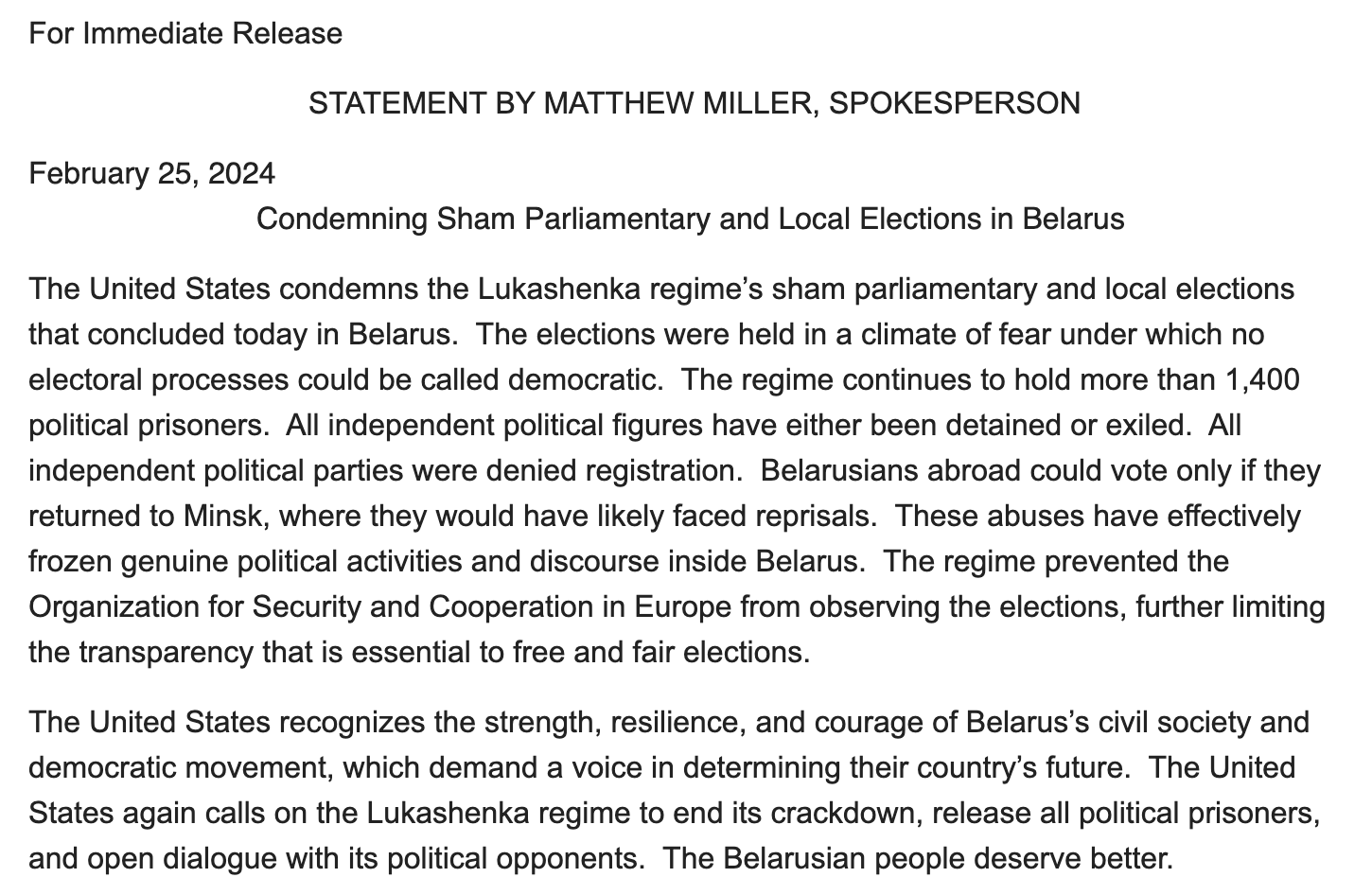This week, Moldova’s pro-Russian breakaway territory Transnistria held a rare meeting in which they called on Moscow for protection.
Transnistrian leader Vadim Krasnoselsky convoked an extraordinary session of the region’s Congress of Deputies for the first time in nearly two decades.
He argued that Moldova is “violating the rights” of Transnistrians by imposing new tariffs on imports into and exports from the breakaway region. The roughly 600 lawmakers who attended the session voted in favor of a resolution calling on Russia for help.
The move conjured up images of what happened in Ukraine’s Donbas region before Moscow’s full-scale invasion of that country. People started to worry that maybe Moldova would get dragged into the war.
I wrote a news blurb about the events for National Journal, which you can read below. It provides more context on the history of Transnistria. I also spoke at length with Volodymyr Dubovyk, a professor of international relations from the Ukrainian city of Odesa, which is just a few hours from Transnistria by car.
He explained why the events in Transnistria aren’t really something to worry about, and where U.S. Congressional inaction on Ukraine fits into all of this. Here’s our conversation, which has been lightly edited for length and clarity.
Cristina: How significant is what happened on Wednesday in Transnistria?
Volodymyr: I don’t think it’s very significant. It’s a way to remind the world that they still want to be separate from Moldova.
There is no new pressure from Moldova on Transnistria, so I don’t know what threats or challenges they are talking about, except for the one that always existed, which is that Moldova has made no secret that they want Transnistria to be integrated one day.
If you’re in Transnistria, you ideally need more money right now because, of course, Russia is preoccupied with its war on Ukraine. It’s not spending as much on Transnistria as it used to. Maybe you want to pocket some of that money.
Russia is often using Transnistria to destabilize the region. Over the last two years, during the full-scale war [in Ukraine], they have tried several times to distract attention from Ukrainians and maybe convince Ukrainians and the West that some trouble and some challenge is emanating from that region even though there is no big threat.
It’s a very small area. The number of military [personnel] there is limited. It’s formally the Russian military, but it’s really local people who are poorly trained and poorly equipped. So it’s not a big deal for Ukraine whatsoever in the context of this bigger war.
It could have been a problem for Ukraine if Russia were more successful in its offensive in the south. Maybe with ground troops and ships coming closer to Odesa, then maybe Transnistria would play a certain role.
But since Russia got stuck in the south, then Transnistria is completely abandoned, neglected, and forgotten.
Even prior to the larger war, there were logistical challenges for [Russia] to even get to Transnistria. A couple of times, people like [Russian Foreign Minister Sergei] Lavrov, big shots in the Kremlin, considered flying there. But then Moldova said no, Ukraine said no, and Romania said no, so there was no way for them to fly there, even to visit that area.
Early in the war, Russia did say that they were going to go to Transnistria. And I’ve been to Chișinău several times in the last year and a half and talked to a lot of people, and they said that at the beginning of the full-scale invasion of Ukraine, they were terrified. They packed their suitcases and said that if Russia were to break through to Odessa, they would probably head to the border because Russia probably wouldn't take over only the Transnistria territory. They might continue West to take over all of Moldova.
There was widespread fear. Then they were very relieved to see that the Russian invasion didn’t get as close to Moldova as they feared.
If U.S. aid gets to Ukraine, then Ukrainian troops will be able to defend key positions on the frontline, and then I don’t think Russian troops will be able to get anywhere close to Odesa or Transnistria.
Cristina: Do you have any sense of the reason for the timing? The Congress of Deputies meets very rarely. Why now?
Volodymyr: Russia is showing that they are so confident about the success of the war. They started talking again about how Odesa is a Russian city that is waiting to be liberated. They are talking about Kharkiv again.
They haven’t talked about that for the past two years. They talked about it at the beginning of the war, but then the war went badly for them, and they stopped talking about it. They focused primarily on the Donbas and Crimea and those regions that they have “integrated” into Russia.
But now they’re talking about Odesa and Kharkiv again, and I think Transnistria was important to send a signal to the West to show that Russia is getting stronger and has the upper hand in the war. They want to push Ukraine to negotiations and some kind of negotiated ceasefire.
It’s some kind of psyop that Russia is playing.
And it’s worked for them several times before when there was some kind of turmoil, and there were some explosions in Transnistria a few years ago. Primarily it’s directed at the West to try to show them that Russia is getting stronger and going to win.
Cristina: I know some people were concerned because we saw similar events in the Donetsk and Lugansk regions of Ukraine before the full-scale invasion.
Volodymyr: The big difference between Donetsk and Lugansk on the one hand and Transnistria on the other is the geographic location. The Donbas region has a huge border with Russia, so they can provide assistance and some troops and materials and arms. They cannot reach Transnistria.
They do have an arms depot in Cobasna, but the threat from that is of some kind of misfire or accidental explosion. Many weapons there are obsolete, so people are always concerned about safety.
Cristina: So what you’re saying is that Russia is emboldened because of the gains it has made recently in Ukraine, so they’re trolling everyone?
Volodymyr: They are trolling. They’re keeping the tension.
Of course, they also have troops in Belarus. That’s why some Ukrainian troops have to stay in the north of Ukraine, just in case some Russian troops decide to move from the north into Ukraine, like they did two years ago. Those Ukrainian troops are needed more in the Donbas or in the south. But we can’t move them there. That means there are fewer Ukrainian troops on the frontline.
So maybe Transnistria is an attempt to do the same thing in the south. There are Ukrainian troops in Odesa as well. We can’t keep Odesa naked and leave the border with Transnistria uncontrolled.
What I’m writing:
• I wrote a deep dive into what happens now that Hungary has green-lit Sweden's NATO membership, what Stockholm brings to the alliance, and, most importantly, whether NATO can stay relevant. This story is unlocked and free to read.
• In this week’s National Journal Radio, my colleagues and I discuss the war in Ukraine in its third year, the debate over aid, and the role of former President Trump in all of that.
My weekly news blurbs:
What I’m reading:
• Interesting tidbit: Most Spaniards know the Catalan protest song l’Estaca, banned by dictator Francisco Franco but often sung during the 1970s in defiance of the dictatorship. The song later became famous in Poland, becoming Solidarity’s anthem against the Communist regime. Now, it’s become popular again as a protest song in Belarus, where a street musician was recently arrested for singing it, according to Politico Europe’s Playbook. If you look at the YouTube clip from a 1976 concert in Barcelona, most of the comments appear to be from people in Belarus.
• Russia is preparing a new offensive against Ukraine starting as early as late May or summer, Ukrainian President Volodymyr Zelensky said. Reuters has the story.
• Ukrainian President Volodymyr Zelensky co-hosted a summit with Albania’s government to encourage further support for Kyiv by southeastern European countries, the Associated Press reports.
• Zelensky met Balkan leaders at the “Ukraine-Southeast Europe” Summit in Tirana and called on Balkan countries to “co-produce” when it comes to the defense industry, Balkan Insight reports.
• Kyiv’s special services are hunting down Russian mercenaries abroad, Andriy Yusov, an official with Ukraine’s HUR military intelligence, told Poilitico Europe.
• More Russian soldiers are likely to have died seizing the Ukrainian town of Avdiivka than in the 10-year Soviet-Afghan war, the think tank the Institute for the Study of War said.
• French President Emmanuel Macron said it is critical for Europe’s security to defeat Russia in Ukraine and that he has not ruled out sending Western troops to Ukraine, the BBC reports.
• The late Russian opposition leader Alexei Navalny was about to be freed in a prisoner swap when he died, according to his colleague Maria Pevchikh. She claimed that Navalny was going to be exchanged for Vadim Krasikov, a Russian hitman serving a life sentence for murder in Germany. Two U.S. citizens being held in Russia were also going to be part of the deal. The BBC has the story.
• Attempts to hire a hearse to carry the body of late Russian opposition leader Alexei Navlany to his funeral have been thwarted by unknown people, CNN reports.
• Russia sentenced a prominent human rights activist — Oleg Orlov, head of the rights group Memorial — to two-and-a-half years in prison, in the latest sign of President Vladimir Putin’s increasingly brutal crackdown on critics, the Financial Times reports.
• Europe must curb welfare spending and tax cuts to deter a “more aggressive Russia” with prolonged defense and security funding increases, Denmark’s Prime Minister told the Financial Times.
• Foreign Policy Magazine has a deep dive into the environmental legacies of the Nagorno Karabakh conflict.
• The UK government will boost British exports and investment to the Western Balkans and make up to £15.75 billion available to the region in export finance, the government announced.
• Israeli Finance Minister Bezalel Smotrich vowed to continue expanding settlements in the West Bank, defying international pressure to stop building on land that Palestinians view as core to a future independent state, Reuters reports.
• Palestinian Authority’s Prime Minister Mohammed Shtayyeh and his government submitted their resignations, CNN reports. The resignation comes as the PA is under intense pressure from the U.S. to reform and improve its governance in the West Bank.
• Palestinian factions, some of whom have been at odds for almost two decades, are meeting in Moscow to discuss forming a new government following the resignation of the Palestinian Authority government, Al Jazeera reports.
• Palestinian civilians sheltering in the city of Rafah will be allowed to flee to other areas of southern Gaza before an Israeli attack but will not be allowed to return to their homes in the northern part of the Gaza Strip, two Israeli officials told NBC News. About 1.4 million Palestinian civilians have sought refuge in the city but must relocate before an upcoming Israeli attack.
• The United States has not seen Israel’s plan for Rafah, State Department spokesperson Matthew Miller told reporters.
• More than 100 Palestinians were killed and some 700 others wounded after Israeli troops opened fire on hundreds waiting for food aid southwest of Gaza City, Al Jazeera reports.
• The Biden administration gave Israel until mid-March to sign a letter, provided by the White House, that gives assurances it will abide by international law while using U.S. weapons and allow humanitarian aid into Gaza, three U.S. and Israeli officials told Axios.
• Colombia’s President Gustavo Petro announced his government is suspending purchases of weapons from Israel, the Associated Press reports.
• The Israeli military is confident that Hamas leader Yahya Sinwar, the alleged architect of the Oct. 7 attacks, is hiding inside a network of tunnels beneath southern Gaza but is surrounded by a human shield of hostages intended to deter an operation to capture or kill him, the Washington Post reports.
• The Hamas leader, Ismail Haniyeh, called on Palestinians in Jerusalem to defy Israeli restrictions and march to the Aqsa mosque to pray at the start of Ramadan, creating the potential for clashes between Israeli security forces and Palestinians, the New York Times reports.
• Israeli Prime Minister Benjamin Netanyahu said that his government will find a way to end exemptions for ultra-Orthodox Jews from conscripting in the Israeli military, Reuters reports.
• Former Guinean opposition leader Mamadou Oury Bah was appointed Prime Minister by the country’s military junta a week after it abruptly dissolved the government, the BBC reports.
• The main opposition politician in Chad, Yaya Dillo, was killed during an exchange of fire with security forces this week, the New York Times reports.
• Gun battles across the Haitian capital of Port-au-Prince yesterday left four police officers dead, as a prominent gang leader said a coordinated attack was underway to oust Prime Minister Ariel Henry, CBS News reports.
Interesting statements:
You can write to me for any reason: c.maza@protonmail.com





